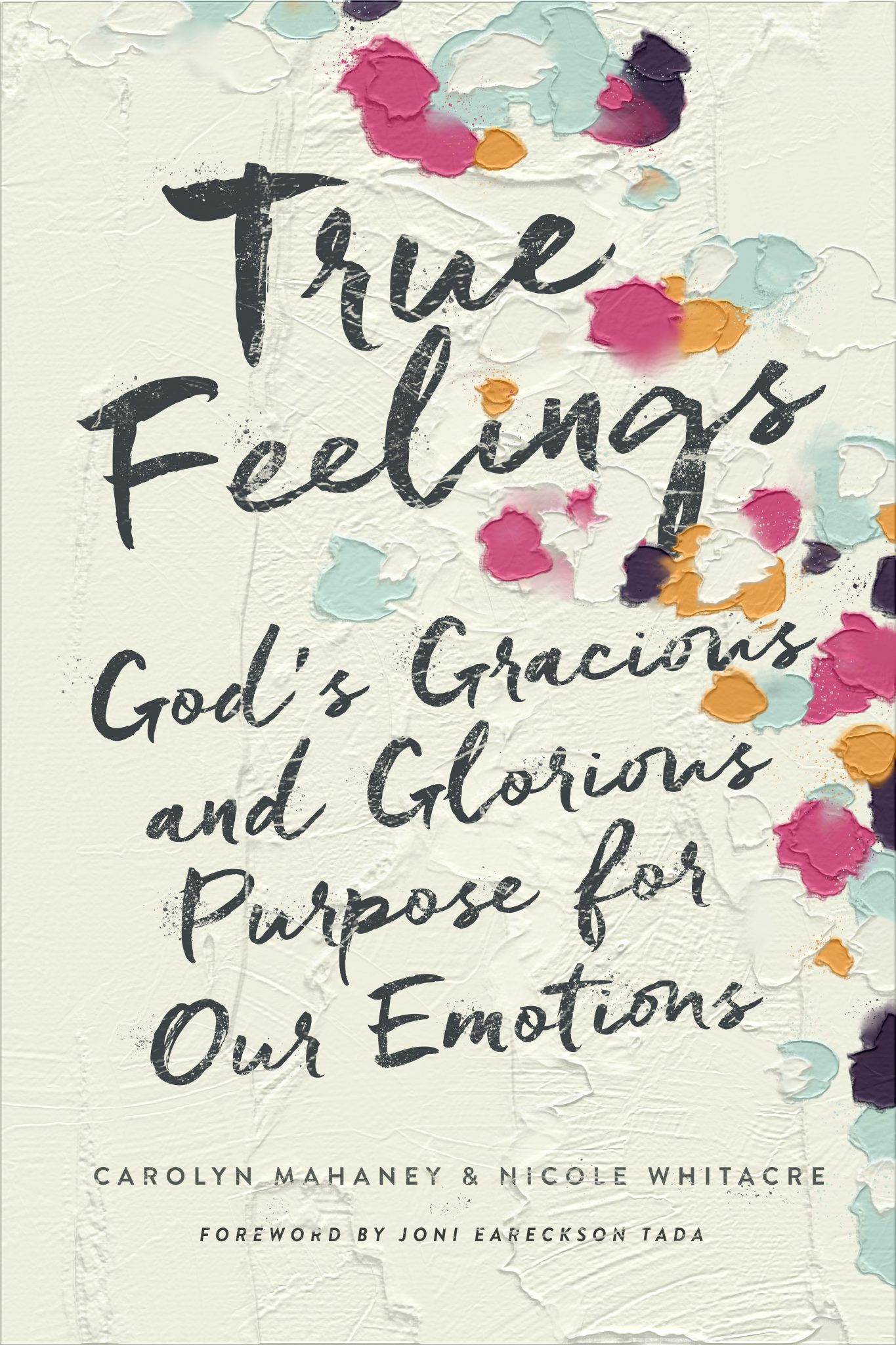Several months ago a friend was relaying a heated discussion and asking for counsel about how she handled it. “This girl was so emotional about the history of injustice in this situation,” she said. “It was like she couldn’t even see things clearly or how we were trying to be part of the solution.” I listened for a few minutes, irked but unsure why.
It wasn’t until hours later that it dawned on me: organized thought and emotion were being pitted against one another, as if the only route to resolution was through systematic thought. Meanwhile, emotion was being dismissed as merely lack of logic.
Logic is a helpful tool for thinking through all kinds of situations, but the belief that it’s the most necessary tool is unfortunate—and not rooted in Scripture. This is why I’m grateful for mother-daughter writing duo Carolyn Mahaney and Nicole Whitacre, and their new book, True Feelings: God’s Gracious and Glorious Purpose for our Emotions [read Melissa Kruger’s interview with the authors]. Christians, both men and women, need to learn to value their emotions.
Let Emotions Move You
Perhaps in reaction to the world’s indulgence of emotion, many churches and communities eschew expressing emotions at all. They see them as weak, born of scarred histories, unable to help a person see clearly, a hindrance to moving to a place of health. It’s interesting, then, that Mahaney and Whitacre point out the root word for emotion “comes from the Latin movere, which means ‘to move.’” They expound:
Many buy into the misconception that to be moved by emotions is a bad thing. As Christians, we are fond of telling each other, “Don’t be led by your emotions.” This is partially true: we should not be led by our emotions into sin. But emotions are supposed to move us. God gave us emotions to move us toward himself in love and obedience.
I love that. The reason God gave us emotions is, primarily, to move us to himself. Motivated then by his love for us and ours for him, emotions can move us toward obedience and loving others. The whole of True Feelings explores these vital ideas.
What does it mean to treat our emotions as given by God? What does it mean to submit our unruly emotions to him, expressing them in ways that honor God and others? How do we, in humble faith, acknowledge true pain, devastating tragedy, and the plain-old simple ache of living in the not yet of the already-not yet kingdom?
Processing Painful Feelings
In every chapter of True Feelings, Mahaney and Whitacre give their readers grace to walk in the messy middle of figuring out how to navigate emotions. It’s so easy to dismiss emotions in the midst of conflict, or belittle them with trite words not found in Scripture. This book helps readers who have felt dismissed and belittled. There is space to truly mourn that which is broken. Mahaney and Whitacre write:
Pain may come suddenly and stay for a long time. God does not rush us through the experience of pain and heartbreak, even if sometimes that’s what it feels like other people try to do.

True Feelings: God's Gracious and Glorious Purpose for Our Emotions
Carolyn Mahaney and Nicole Whitacre
True Feelings: God's Gracious and Glorious Purpose for Our Emotions
Carolyn Mahaney and Nicole Whitacre
Emotions can be confusing. One moment we’re happy, content, and hopeful, and the next we’re anxious, hurt, and overwhelmed.
But we don’t have to live at the mercy of our emotions. In True Feelings, a mother-daughter team clears away common misconceptions and mixed messages about our feelings to offer us a biblical perspective on emotions—helping us understand how they work, why we feel what we feel, and how to develop good emotional habits. We will see that we don’t have to ignore, excuse, or follow our feelings, but can instead learn to honor God with our emotions as an integral part of who he made us to be.
They proceed to quote Tim Keller: “There is seldom a place provided for lamentation in the church, and down to the present day, many do not give sufferers the freedom to weep.”
When I was asked to review a book titled True Feelings, I wondered if it would trivialize the importance of truly mourning broken things. I really hoped it wouldn’t. I’m in a season where I’m facing many crippling, traumatic events from the past few years.
My daily prayer these days is that I would learn to cry, to feel the pain of loss, tragedy, trauma, sadness, and emptiness, instead of trying to tie it up with a bow by evening-time. I didn’t want to read another book telling me how I needed to get over these new, inconvenient emotions quickly to get back to the work of the kingdom.
Grappling with such emotions is the work of the kingdom, if I will let it be. I hoped this book would recognize this truth. My hopes weren’t in vain.
True Feelings for Everyone
True Feelings is a deeply helpful overview of God-given emotions, and it offers hope for the weary in the midst of them. In fact, because it’s valuable, I wish it wasn’t marketed so singularly to women. Men need this book, too.
I would’ve loved to read a book like this but with a slightly more holistic view of humanity. White, Western, middle-class Christians have more freedom to express or eschew emotions than many others do, and this ought to be talked about more in the church. How do all believers everywhere—in every context, with every history—see, receive, and express emotions as good gifts for abundant life on earth?
That minor pushback aside, I think True Feelings is an excellent starting place and should be read by not only women, but also pastors, fathers, husbands, and men.

































